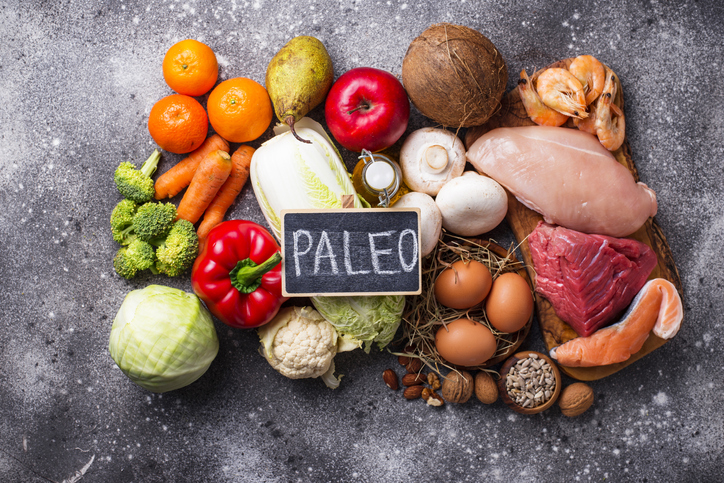- Empty cart.
- Continue Shopping
The Benefits of Paleo Diet for Weight Loss

The Paleo diet, also known as the Paleolithic diet or caveman diet, is based on the principle of eating foods that our ancestors consumed during the Paleolithic era. This diet primarily consists of whole, unprocessed foods such as lean meats, fish, fruits, vegetables, nuts, and seeds, while excluding grains, legumes, dairy, and processed foods. Beyond its emphasis on natural, nutrient-dense foods, the Paleo diet has gained popularity for its potential benefits in weight loss.
1. Emphasis on Nutrient-Dense Foods
The Paleo diet encourages the consumption of nutrient-rich, whole foods that provide essential vitamins, minerals, and antioxidants. These include fruits, vegetables, lean proteins, and healthy fats. By prioritizing nutrient density, individuals are more likely to feel satisfied and receive the necessary nutrients without excessive calorie intake.
2. Reduced Processed Foods and Sugars
One of the core principles of the Paleo diet is avoiding processed foods and added sugars. This helps in reducing empty calories and minimizing spikes in blood sugar levels. By eliminating or significantly reducing these sources of empty calories, individuals are more likely to create a calorie deficit, which is essential for weight loss.
3. Increased Protein Intake
The Paleo diet places a strong emphasis on protein-rich foods like lean meats, fish, and poultry. Protein is known for its satiating effect, helping to control appetite and prevent overeating. This can lead to reduced calorie intake and support weight loss efforts.
4. Enhanced Blood Sugar Regulation
The absence of refined carbohydrates in the Paleo diet contributes to more stable blood sugar levels. This can help regulate insulin levels, reducing the likelihood of experiencing sugar crashes and subsequent cravings for unhealthy, calorie-dense foods.
5. Improved Gut Health
The Paleo diet encourages the consumption of fiber-rich fruits and vegetables, which are beneficial for gut health. A healthy gut microbiome is associated with better digestion, nutrient absorption, and overall metabolic health, all of which contribute to weight management.
6. Reduced Inflammation
Processed foods, grains, and dairy products can sometimes trigger inflammation in the body. The Paleo diet, by excluding these potential sources of inflammation, may lead to reduced systemic inflammation. This can have positive effects on overall health and may support weight loss efforts.
7. Enhanced Metabolism
The combination of increased protein intake and reduced intake of processed foods may contribute to a faster metabolism. Protein requires more energy for digestion compared to carbohydrates or fats, a phenomenon known as the thermic effect of food. This can potentially lead to increased calorie expenditure.
8. Potential for Fat Loss
The Paleo diet encourages the consumption of healthy fats from sources like avocados, nuts, and seeds. These fats are satiating and can contribute to feelings of fullness. Additionally, a diet rich in healthy fats may promote the body’s ability to use stored fat for energy, potentially leading to fat loss.
Finally, the Paleo diet offers a range of potential benefits for weight loss, primarily due to its emphasis on whole, nutrient-dense foods and the exclusion of processed and calorie-dense options. However, it’s essential to approach any diet with a balanced perspective and consider individual preferences and nutritional needs. Consulting with a healthcare provider or registered dietitian before making significant dietary changes is advisable, especially for individuals with specific health concerns or conditions. Remember, sustainable and long-term weight loss is best achieved through a combination of a balanced diet, regular physical activity, and a healthy lifestyle








